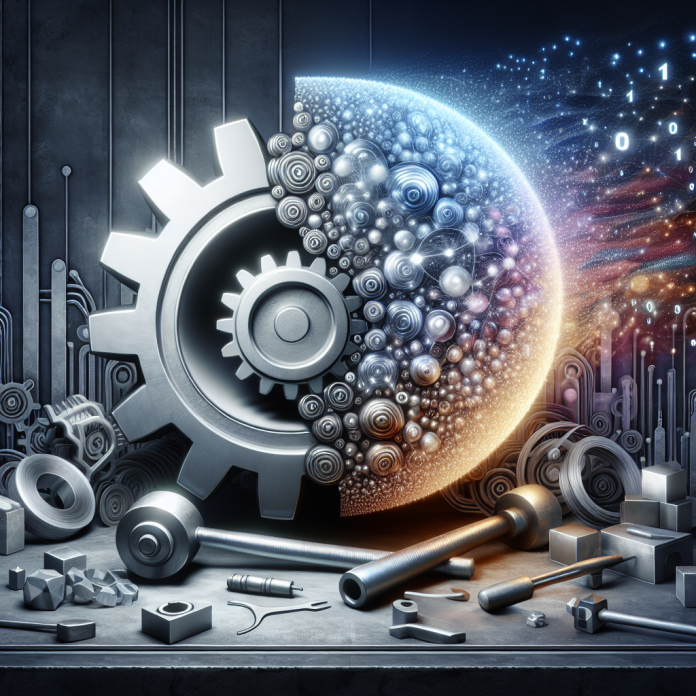Artificial Intelligence (AI) Applications Explored
In today’s fast-paced world, Artificial Intelligence (AI) is no longer just a buzzword; it has become an integral part of our daily lives. From virtual assistants to self-driving cars, AI is revolutionizing industries and transforming the way we work, communicate, and live. In this article, we will explore some of the most intriguing AI applications that are shaping the future and impacting various sectors.
### Virtual Assistants: Revolutionizing Customer Service
Virtual assistants like Siri, Alexa, and Google Assistant have become household names, providing users with personalized assistance and information at their fingertips. These AI-powered assistants use Natural Language Processing (NLP) and Machine Learning algorithms to understand and respond to user queries in real-time. Whether it’s setting reminders, playing music, or ordering groceries, virtual assistants have become an indispensable part of our daily routines.
But virtual assistants are not just limited to personal use; they are also revolutionizing customer service in industries such as retail, healthcare, and banking. Companies are using AI chatbots to provide round-the-clock support to customers, answer queries, and streamline the customer service process. These chatbots can handle multiple customer inquiries simultaneously, reducing wait times and improving customer satisfaction.
### Healthcare: Predicting Diseases and Personalized Treatment
AI is making significant strides in the field of healthcare, particularly in disease diagnosis, treatment planning, and patient care. Machine Learning algorithms are being used to analyze medical images, such as X-rays and MRIs, to detect abnormalities and predict disease progression. AI can also analyze patient data to identify patterns and trends, helping healthcare providers make more informed decisions about treatment options.
Personalized medicine is another area where AI is making a profound impact. By analyzing genetic data and patient history, AI algorithms can recommend personalized treatment plans tailored to individual patients. This precision medicine approach is revolutionizing healthcare by improving patient outcomes and reducing healthcare costs.
### Self-Driving Cars: Redefining Transportation
Self-driving cars are no longer a futuristic concept; they are becoming a reality on our roads today. AI-powered autonomous vehicles use a combination of sensors, cameras, and Lidar technology to navigate streets, avoid obstacles, and make split-second decisions. These vehicles are revolutionizing transportation by improving road safety, reducing traffic congestion, and providing mobility solutions for individuals with disabilities.
Companies like Tesla, Google, and Uber are investing heavily in self-driving technology, with the goal of making autonomous vehicles mainstream in the near future. While there are still regulatory and ethical challenges to overcome, self-driving cars have the potential to transform the way we commute and travel, making roads safer and more efficient for everyone.
### Fraud Detection: Protecting Against Cyber Threats
In an increasingly digital world, cybersecurity is a top priority for businesses and individuals alike. AI is playing a vital role in detecting and preventing fraud, phishing attacks, and other cyber threats. Machine Learning algorithms can analyze vast amounts of data in real-time to identify anomalies, recognize patterns, and flag suspicious behavior.
Financial institutions use AI-powered fraud detection systems to monitor transactions, identify fraudulent activity, and prevent unauthorized access to accounts. E-commerce platforms use AI algorithms to detect and prevent credit card fraud, account takeover attacks, and online scams. By leveraging AI technology, businesses can protect their data, assets, and customers from cyber threats and financial losses.
### Conclusion
Artificial Intelligence is a powerful tool that is reshaping industries, driving innovation, and transforming the way we work and live. From virtual assistants and healthcare to self-driving cars and fraud detection, AI applications are diverse and wide-ranging, with the potential to revolutionize every aspect of our lives.
As AI technology continues to evolve and mature, we can expect to see even more exciting applications and advancements in the years to come. Whether it’s personalized medicine, autonomous vehicles, or virtual assistants, AI is changing the world in ways we could have never imagined. Embracing AI innovation and development is key to staying competitive and relevant in today’s digital age.
So, the next time you ask Siri for directions, interact with a chatbot for customer support, or see a self-driving car on the road, remember that AI is at the heart of these technologies, shaping the future and paving the way for a more connected and intelligent world.

